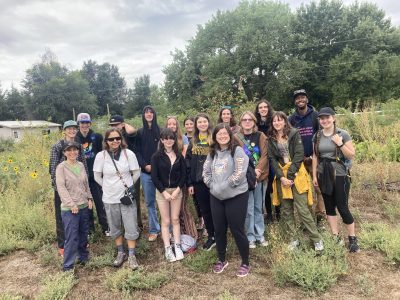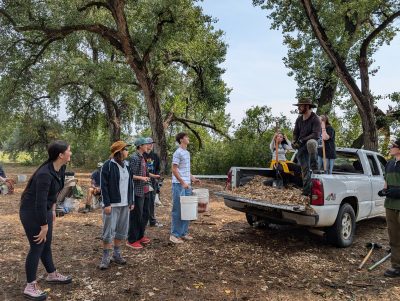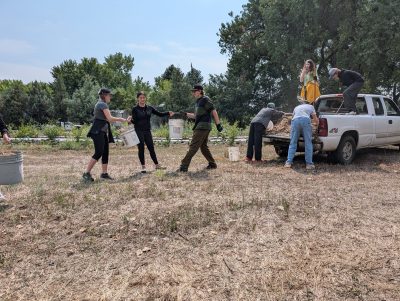Written by Eeland Stribling, Cottonwood Institute Field Instructor

When New Vista High School students stepped onto Ollin Farms for a Cottonwood Institute field day, they expected to learn about sustainable farming. What they didn’t expect was how a day of hands-on experiences would foster seeds of environmental stewardship and community connection.

The day began with Mark, our passionate host and owner of Ollin Farms, sharing the story of Ollin Farms, his family, and its approach to sustainable agriculture. As students listened, you could see their perspectives shifting, their understanding of food systems expanding beyond grocery store aisles to encompass the complex dance between farmer, land, and community. This new awareness came to life as students prepared their own farm-fresh lunch, turning just-harvested produce into a communal meal. The simple act of chopping vegetables became a tangible lesson in the farm-to-table journey, fostering a deep appreciation for the work that goes into growing our food.
Despite unexpected rain, the day was filled with meaningful activities that connected students to the land and each other. They rolled up their sleeves for a mulching project, contributing directly to the farm’s health and sustainability. Mulching was a great way to get energy out and help the farm assistants. Then the joy on their faces as they fed leftover produce to the farm’s goats and sheep was palpable, bridging the gap between the plants they had just prepared and the farm’s living ecosystem. These hands-on experiences did more than teach about farming practices; they cultivated a sense of responsibility and connection to the environment and agriculture that no lesson plan could match.

As the day drew to a close, students spread out near the river running through the farm for a reflective sit spot activity. In these quiet moments, surrounded by the land they had worked and the animals they had fed, students contemplated their place in the broader environmental picture. The ensuing group reflection revealed a profound shift in many students’ perspectives.


Help us get more hands dirty! Please consider making a donation or becoming a monthly donor to help invest in our students, programs, and long term sustainability.
DONATE TODAY
